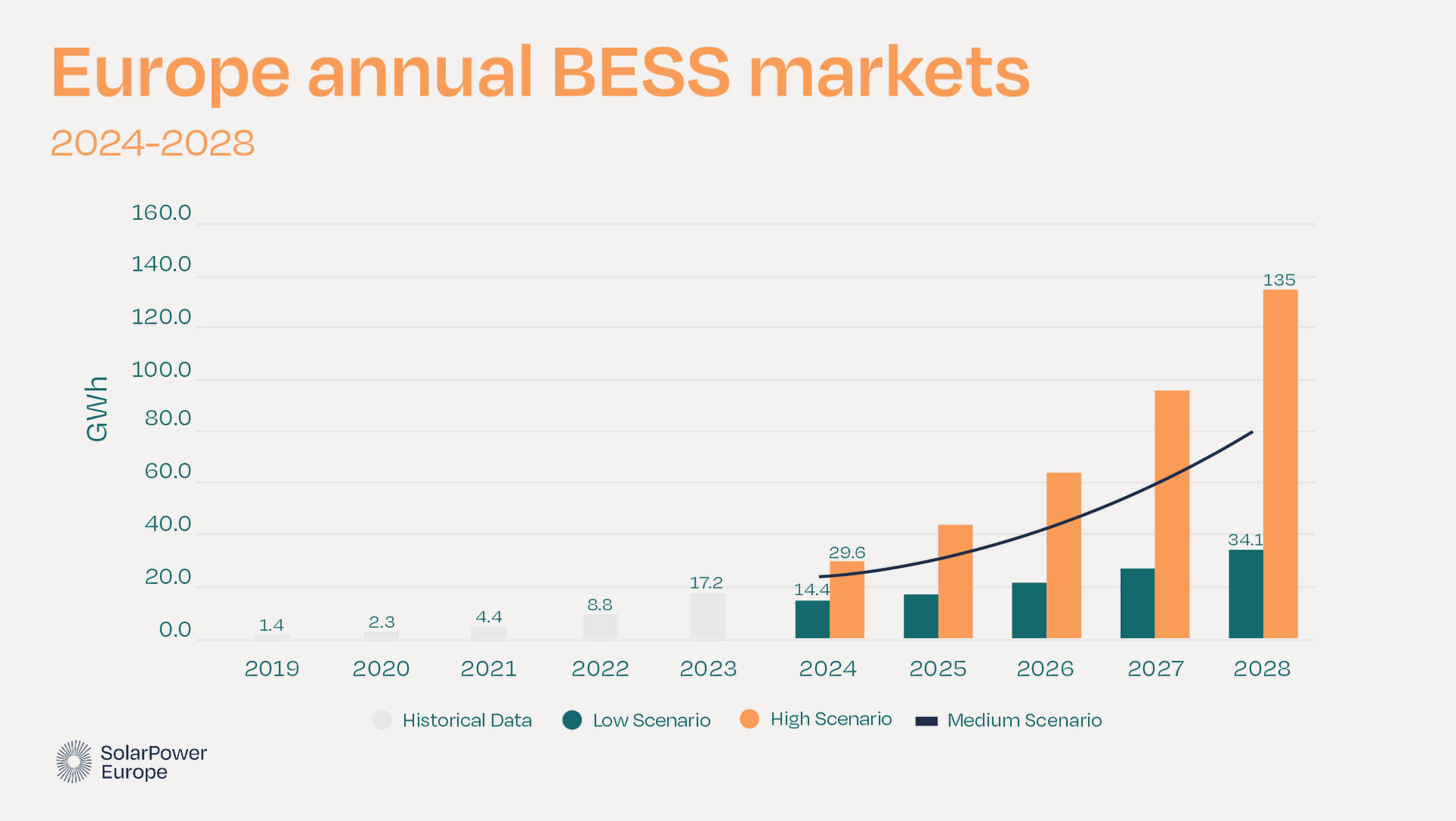In 2023, Europe saw a significant increase in the installation of new battery energy storage systems (BESS), with 17.2 GWh added, marking a 94% growth compared to the previous year. This growth trend has been consistent over the past three years, with the total operating BESS fleet in Europe reaching approximately 36 GWh by the end of 2023. The residential sector accounted for the majority of this capacity at 63%, followed by large-scale battery systems at 21%, and commercial & industrial systems at 9%. Germany emerged as the leader in the market, holding a 34% market share in 2023, followed by Italy at 22% and the United Kingdom at 15%.

Looking ahead to 2024, the deployment of battery energy storage systems is expected to continue expanding; however, projections indicate that there is still a gap in meeting the estimated 200 GW of battery power capacity required by 2030 to fully leverage the EU's solar potential. Various obstacles hinder the widespread adoption of battery storage across Europe, including challenges such as unmet targets, inadequate market signals, issues of double taxation, and restrictive grid policies for hybrid renewable installations. Addressing these barriers will be crucial in realizing the full potential of battery energy storage systems in Europe's transition towards sustainable energy solutions.